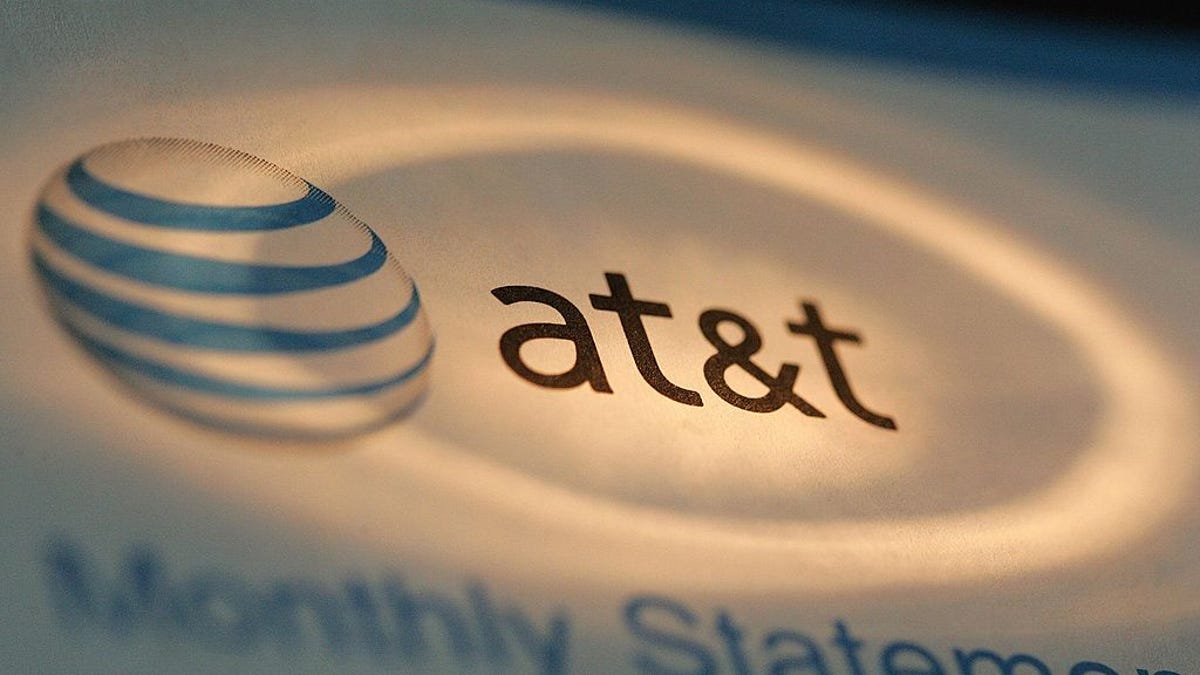Today Is the Last Day to Claim Money From AT&T's $14 Million Hidden Fee Settlement
According to a class action suit, the telecom giant has been charging undisclosed administrative fees for years.

Today is the deadline to file a claim in AT&T's multimillion-dollar class action settlement.
Are you a current or past AT&T customer? You may be eligible for a portion of a $14 million class action settlement -- but you only have until the end of today to file your claim.
Plaintiffs in the case argued AT&T failed to inform postpaid wireless customers they were being charged a $1.99 administrative fee each month. They contend the fee was actually AT&T's way of increasing its base rate "without having to advertise the higher prices." (Unlike prepaid subscribers, postpaid customers are billed after the fact, based on their usage.)
AT&T denied the allegations in an email to CNET, saying it "clearly and prominently" discloses all fees and only agreed to the settlement "to avoid lengthy and expensive litigation."
Here's what you need to know about the AT&T hidden fee case, including who's eligible for a payment, when the deadline to file is, and how much qualified customers could get.
Want to find out about more class action settlements? See if you qualify for payouts from T-Mobile's $350 million data-breach deal or Smashburger's $5 million false advertising suit.
What is AT&T accused of in the class action lawsuit?
In the suit, filed in the US District Court for the Northern District of California, plaintiffs Ian Vianu, Elizabeth Blum and Dominic Gutierrez allege a monthly administrative fee attached to each wireless line in May 2013 is really a way for AT&T to increase its basic rate "without having to advertise the higher prices."
The fee has been regularly raised since then -- it more than doubled in 2018 to $1.99 a month -- even though AT&T financial records allegedly show the company's administrative costs have actually been decreasing.
According to the complaint, mention of the fee is intentionally buried in bill statements "to [make] it likely customers will not notice it."
It's also phrased to suggest that it's akin to a tax or regulatory fee, the suit reads, "when in fact it is simply a way for AT&T to advertise and promise lower rates than it actually charges."
Calling the practice a "bait-and-switch scheme," the plaintiffs maintain AT&T has "unfairly and improperly extracted hundreds of millions of dollars in ill-gotten gains from California consumers."
Their complaint accuses the carrier of violating several California statutes regarding unfair, unlawful and fraudulent business practices, as well as "the implied covenant of good faith and fair dealing."
Who is eligible for money from the AT&T settlement?
While all postpaid customers were charged the fees, only California residents are eligible for payment in this case. That's because the California Consumers Legal Remedies Act protects residents against "false advertising, fraud, and other unfair business practices."
AT&T customers in California who were charged administrative fees on their postpaid wireless service plans between June 20, 2015, and June 16, 2022, can file a claim for a one-time cash payment.
It's not clear how many subscribers AT&T has in California, although, with more than 80 million postpaid customers across the country, it is the third-largest mobile carrier in the US.
How much will eligible customers receive?
All class members who successfully file a claim will receive an equal portion of the $14 million settlement, currently estimated to be $20. The final amount may be higher or lower depending on the number of claimants, as well as attorneys' fees.
Current AT&T subscribers would receive their refund via an automatic credit to their account, while former customers would get a check mailed to them.
The payments won't be a full reimbursement: According to AT&T records, the average customer paid $180 in administrative fees between 2013 and 2015, The Verge reported.
How do I file a claim for payment from AT&T?
If you believe you're eligible for a portion of the settlement, you can submit a claim on this website or print out a physical form to mail in.
You'll be asked for your name, mailing and email addresses and AT&T Wireless phone number or account number. Claims must be submitted by Oct. 29, 2022.
A sample postcard sent to eligible class members in the AT&T class action settlement.
Some class members received emails or postcards notifying them of the potential settlement with a Notice ID and Confirmation Code. If you received a notification, include the ID and code provided when you file.
If you didn't receive a postcard or email -- or do not know where it is -- you can still file without them.
When will class members get paid by AT&T?
Any compensation will be disbursed only after the final approval hearing for the deal, scheduled for Nov. 3, and after any objections and appeals are addressed. Typically payments are sent out within 45 days of that period.

